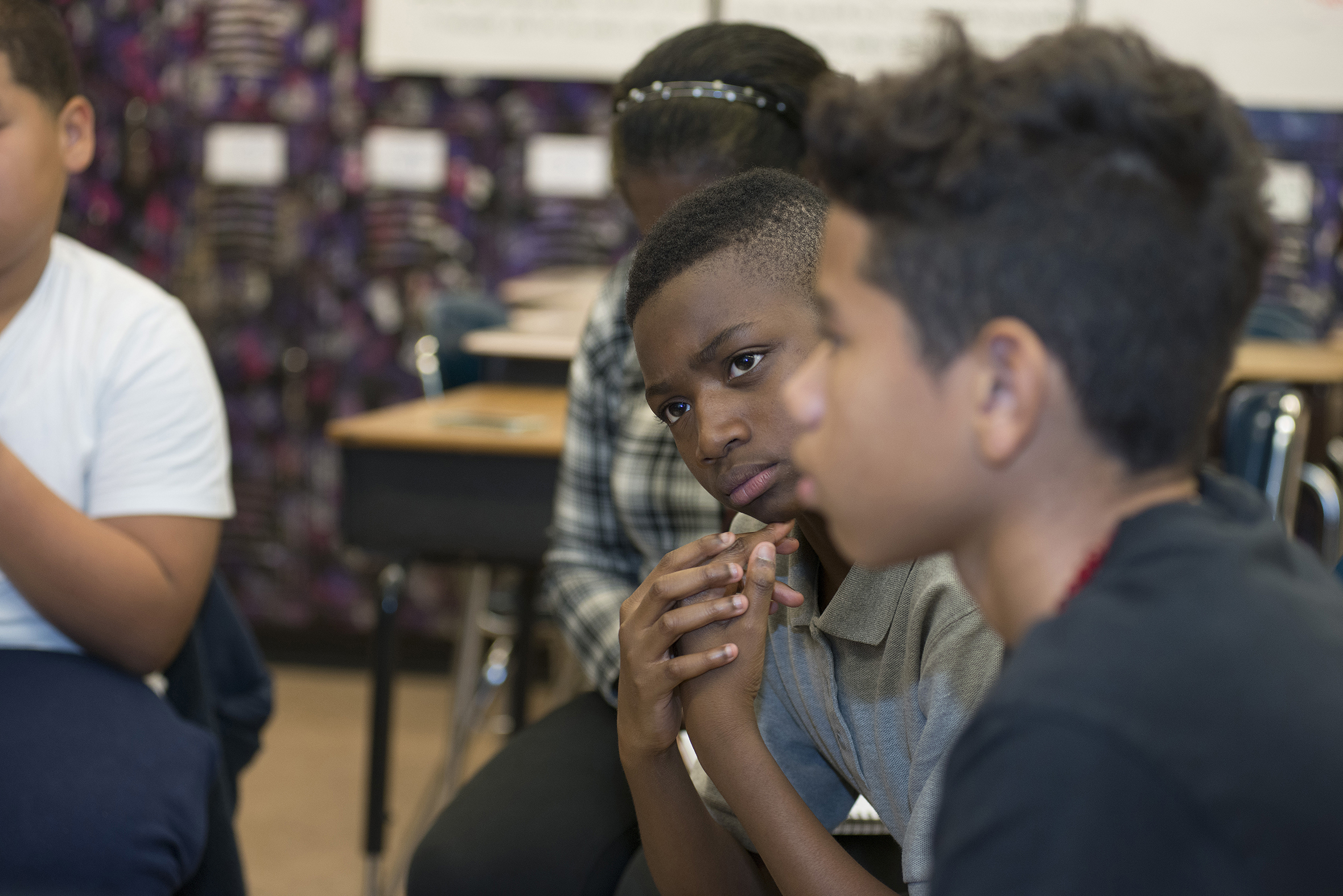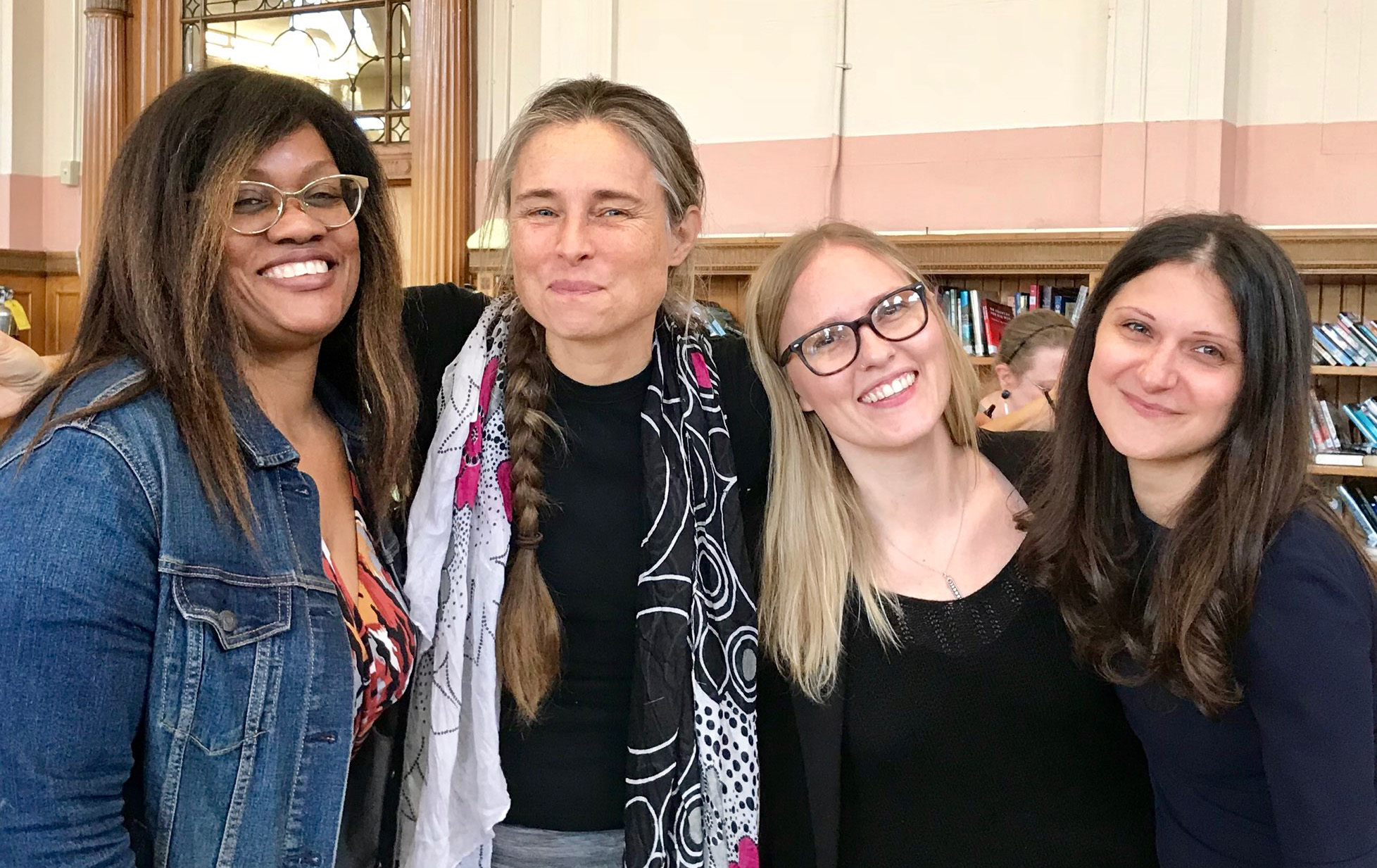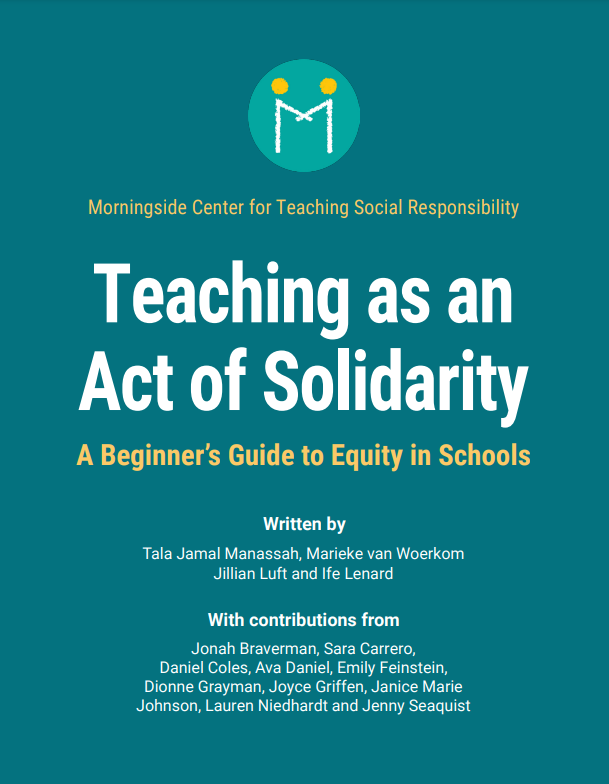Teaching as an Act of Solidarity: An Introduction
Our new Beginners Guide to Equity in Schools is our invitation to you to create your own journey toward a strong and supportive school community that honors every child and every adult.
Our new Beginners Guide to Equity in Schools is our invitation to you to create your own journey toward a strong and supportive school community that honors every child and every adult.
“Love is how humans flock, love is how we murmurate. Amongst the masses, we find our people, figure out the right distance, and then we change together, and we thrive.” — Adrienne Maree Brown
“Hope is an embrace of the unknown and the unknowable, an alternative to the certainty of both optimists and pessimists. Optimists think it will all be fine without our involvement; pessimists adopt the opposite position; both excuse themselves from acting. It is the belief that what we do matters even though how and when it may matter, who and what it may impact, are not things we can know beforehand. We may not, in fact, know them afterwards either, but they matter all the same.” — Rebecca Solnit
In 2016, Morningside Center was awarded a multi-million dollar “Investing in Innovation” (i3) grant to support us in cracking the nut of racial disproportionality in school discipline through a combination of social and emotional learning, restorative practices, and a focus on racial equity – an approach we call Whole School Racial Equity.
 Our years of experience in schools—and closely examining the related data with support from external researchers— told us that you can’t really get at the question of racial disproportionality in school discipline if you’re not talking about pedagogy, mindset, systems, and structures – and about the skills of school staff and of everyone in the school community. And you can’t tackle these disparities if you’re not talking about race and racism.
Our years of experience in schools—and closely examining the related data with support from external researchers— told us that you can’t really get at the question of racial disproportionality in school discipline if you’re not talking about pedagogy, mindset, systems, and structures – and about the skills of school staff and of everyone in the school community. And you can’t tackle these disparities if you’re not talking about race and racism.
To create culturally sustaining schools where the effects of racism are actively resisted, we have to talk about race. Because we can’t claim to be doing high-quality teaching and learning if children are experiencing racial harm at school.

The Morningside Center team that worked on this project has hundreds of collective years of combined experience working with schools, and this project taught us so much about how to go about supporting schools in ways that prioritize connection over control; authenticity over convenience, and perhaps most importantly, how to build and hold space around conversations that can be difficult and painful.
We are all born into a culture that teaches us to run from discomfort of almost any kind. And yet those conversations, and the greater understanding and consciousness that they can produce, can often be the pathways to our greatest learning, our deepest connections, and our most refined understanding of what our special work on this earth is.
Moreover, we are in the midst of a culture war that tells us that having these conversations is divisive. But for whom? Certainly not for the heroic educators who show up to routinely underfunded schools and have continued to do so through a vicious global pandemic. Certainly not for children, who we know start to notice and think about race long before they arrive at elementary school. The only way out of pernicious systems that hurt us all, is through. But, how? Our i3 grant enabled us to learn more about the answer to that question.

We are excited now to share some of our practical learnings with you.
Teaching as an Act of Solidarity: A Beginner’s Guide to Equity in Schools provides a scoped and sequenced series of activities to build connection, trust, and community through social and emotional learning, restorative practices, and racial equity. We believe that being part of such a community is the antidote we educators need now – and it is also the foundation of the education our students deserve.
Doing this work is not easy or simple. We wish that we could train and coach every educator who is using this guide. But we want to share the fruits of this project with schools that don't have the resources to pay for that level of support.
In this document, we offer guidelines and PD plans that we believe can be successfully implemented without such scaffolding. We designed the guide to give school leaders a practical roadmap for addressing issues that are coming up in the world and in schools, while accommodating the average school’s limited time and capacity.
This guide is our invitation to all educators to participate in this work, at any level they can. It is our invitation to you to create your own journey toward a strong and supportive school community that honors every child and every adult.
Tala Manassah is the deputy executive director of Morningside and directed our i3 Whole School Racial Equity Project.